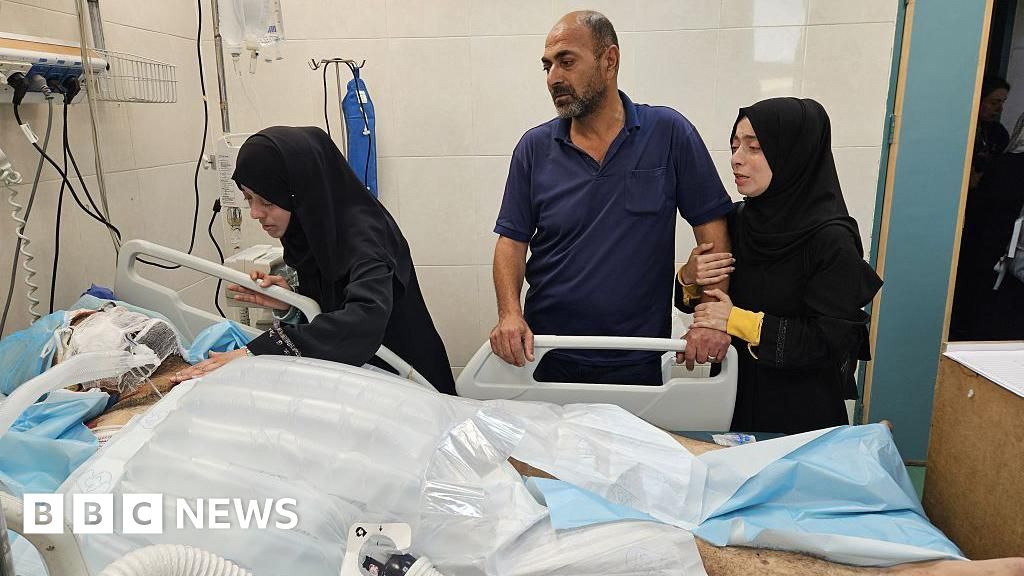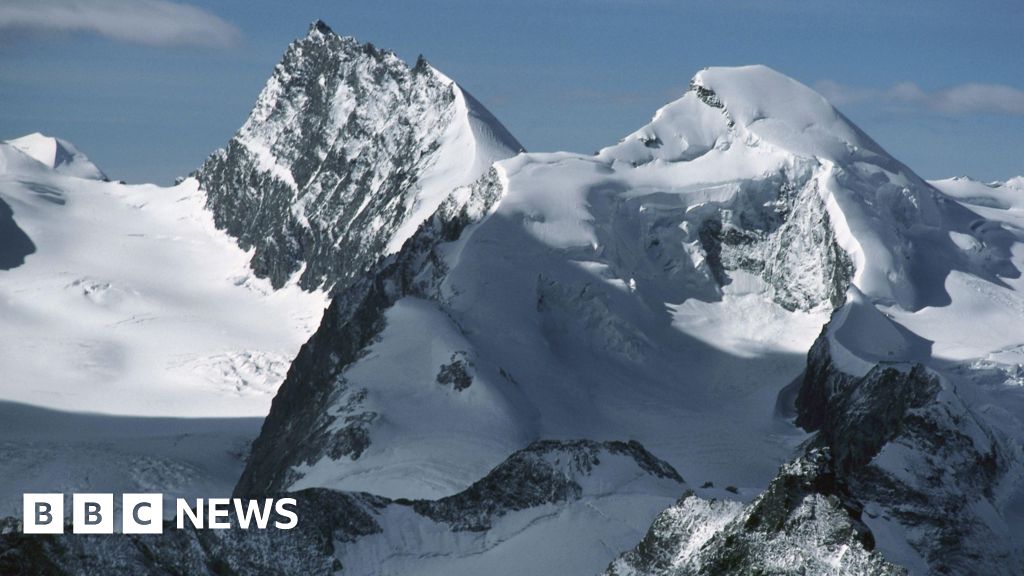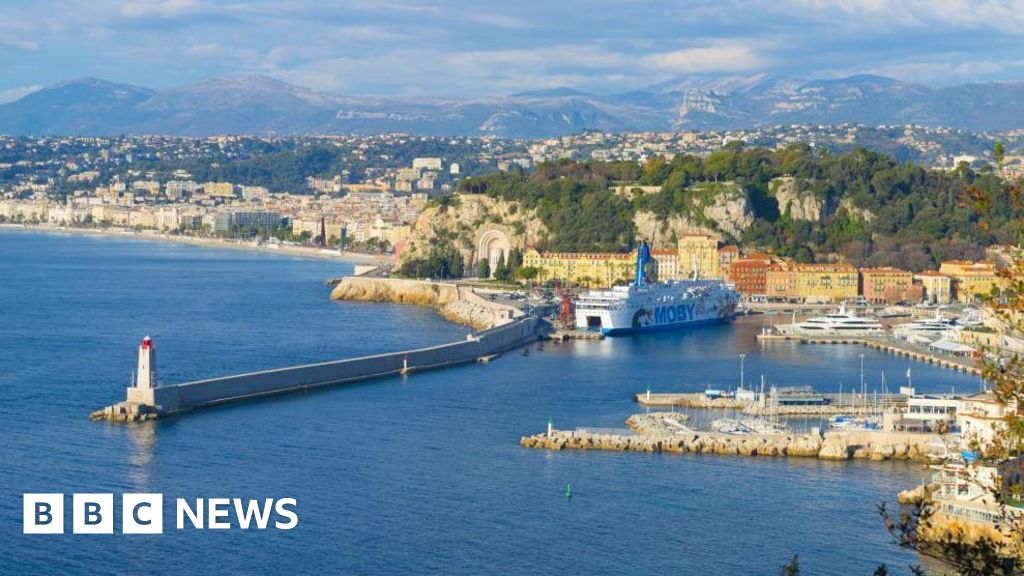ARTICLE AD BOX
By Laura Bicker
BBC News, Seoul
Image source, Getty Images
Image caption,File photo of North Korean farmers working the fields
The warnings are stark and coming from inside and outside of North Korea. Defectors based in South Korea have told us that their families in the North are going hungry. There is a concern as winter approaches that the most vulnerable will starve.
"Problems such as more orphan children on the streets and death by starvation are continuously being reported," said Lee Sang Yong, editor in chief of the Daily NK, which has sources in North Korea.
"The lower classes in North Korea are suffering more and more," as food shortages are worse than expected, Mr Lee said.
Getting information out of North Korea is increasingly difficult. The border has been closed since January last year to prevent the spread of Covid-19 from China. Even getting messages out of the country to family and friends who have defected to South Korea comes at a huge risk.
Anyone caught with an unauthorised mobile phone could be thrown into a labour camp. And yet some still try to send letters or voice mail via text to their loved ones and to publications in Seoul.
Through these sources, some of which have to remain anonymous, we have tried to build a picture of what is going on.
'Every grain of rice'
North Korea has always struggled with food shortages, but the pandemic has made a bad situation worse. Leader Kim Jong-un has compared the current situation to the country's worst disaster in the 1990's, known as the "Arduous March", where hundreds of thousands of people died in a famine.
The situation is not thought to be that bad - yet. There are some hopeful signs. North Korea appears to be preparing to re-open the border with China, but it's unclear how much trade and aid will be needed to repair the economic damage already wrought on the impoverished country.
This year's harvest is crucial. Last year's crops were partly destroyed by a series of typhoons. The United Nations estimates that the country is short of at least two to three months' supply of food.
To ensure this year is as successful as possible, tens of thousands of people have been sent into the fields to help gather rice and corn, including the army.
Kim Jong-un has also reportedly ordered that every grain of rice in the country is to be secured and that everyone who eats should go and help with the harvest.
"A plan has been devised to minimise losses in the harvesting process," said Mr Lee, from the Daily NK.
"It emphasises that strict punishment will be imposed if theft or cheating is reported. It's creating an atmosphere of fear."
North Korean leader Kim Jong-un seems willing to openly acknowledge the severity of the situation
Last week, South Korea's National Intelligence Service (NIS) told a closed-door parliamentary hearing that Mr Kim said he felt he was "walking on thin ice due to the economic situation", according to lawmakers at the briefing.
The NIS also reportedly said the lack of medicine and essential supplies has accelerated the spread of infectious diseases such as typhoid fever.
This growing concern has been amplified by state media, which has highlighted measures being taken to prevent crop damage and released propaganda posters emphasising efforts to work on food production.
Modern farming
North Korea is facing two major issues with its food supply.
The first is its farming methods. Pyongyang may have invested in new military technology and missiles, but it lacks the modern machinery needed for a speedy and successful harvest, according to experts.
Choi Yongho from the Korean Rural Economic Institute told us that "the insufficient supply of agricultural equipment results in low food productivity".
We managed to see this for ourselves.
From a new lookout point in the western tip of South Korea, with the affluent skyscrapers of Seoul as a backdrop, my team and I got a good view over the Han River into North Korea. It feels so close - and yet so far.
From a new lookout point in the western tip of South Korea people can get a good view into the North
I heard one young girl remark through her binoculars that they were the "same people".
"They're just like us", she said, as she bounced back to her mum.
The villagers, dozens of them, were busy creating bails of rice and carrying them on their backs to a rather run-down tractor.
A South Korean farmer in Paju, near the demilitarised zone which separates the two countries, said it took him an hour to strip his fields of rice with a machine. If he'd done it by hand, as it's done in the North, he said one field would take him a week.
A South Korean farmer strips his fields of rice with a machine
Highly vulnerable
But along with the lack of technology and farming supplies, North Korea is facing a much longer-term problem if it wants to secure its food supply.
The country has been listed by US intelligence agencies as one of 11 countries most vulnerable to the effects of global warming, and the limited area it has to grow crops could be the hardest hit.
"Rice and maize yield failures will become more likely along the Western coastline, which is North Korea's historical breadbasket," said Catherine Dill, from the Council on Strategic Risks - one of the authors of a recent report on 'Converging Crises in North Korea'.
That may explain why Pyongyang sent its UK ambassador to the 26th UN Climate Change Conference in Glasgow.
"North Korea is particularly vulnerable to natural disasters. Flood, monsoon rains and typhoons trouble them every year which directly affect yield and indirectly cause pest problems," said Mr Choi.
North Korea is particularly vulnerable to natural disasters
The 'Converging Crises' report suggests this will get much worse in years to come and rice production in particular will be affected by droughts and flooding.
"More intense storms already appear to be affecting North Korea, there are really prominent examples of this in both the 2020 and 2021 typhoon seasons. And in terms of sea level rise, coastal areas are going to be increasingly at risk," Ms Dill said.
While Pyongyang rarely engages with the outside world, it has often made an exception for climate change and the environment.
North Korea worked with the United Nations Environment Programme (UNEP) on detailed country reports in 2003 and 2012, and is also a signatory to international treaties including the Kyoto Protocol and the Paris Agreement.
One reason for this engagement on climate change may be its impact on food production.
The 2012 UNEP report noted that the average temperature in North Korea increased by 1.9°C between 1918 and 2000, among Asia's fastest warming rates.
According to a 2019 Green Climate Fund report, annual average temperatures in North Korea are further expected to rise by 2.8-4.7°C by the 2050's.
South Korea sees a chance here to work together on a problem that affects them both.
Seoul's Environment Minister Han Jeoung-ae told me last week that she hoped to meet her counterpart in Glasgow to talk about inter-Korean collaboration on climate change but that hasn't happened.
If the North Korean delegation is listening to the speeches in Scotland they will know that even when the fear of this pandemic eases and trade with China resumes, even when goods once again start to flow over the border, the country faces a growing crisis which will profoundly affect an already vulnerable population.
And it cannot overcome this on its own.
You might also be interested in:
North Korean potato propaganda is making a comeback... but what does it mean?
Additional reporting by Shreyas Reddy of BBC Monitoring.

 3 years ago
39
3 years ago
39








 English (US) ·
English (US) ·